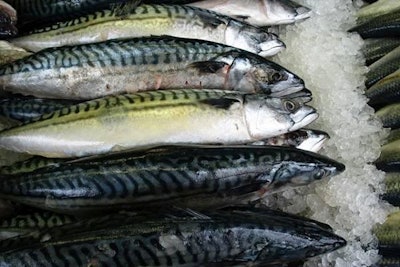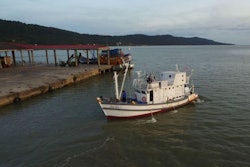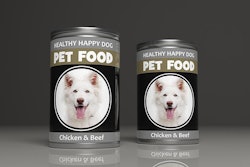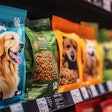
Three years ago, the New York Times published the story of enslaved fishermen laboring on Thai fishing vessels that supplied both the human and pet food markets. Despite global attention, a report by Human Rights Watch found that forced labor on these fishing boats continues. Monterey Bay Aquarium's Seafood Watch program introduced Seafood Slavery Risk Tool, a database to help pet food companies assess the risk of specific fish species or products, such as fishmeal, being associated with forced labor.
History of slave labor in pet food supply chain
In the 2015 article, reporters documented that some of the fish caught on boats using forced labor were sent to a cannery called the Songkla Canning Public Company, which is a subsidiary of Thai Union Frozen Products, Thailand’s largest seafood company. According to U.S. customs documents, more than 28 million pounds of seafood-based cat and dog food in the past year for brands sold in the US, including Iams, Meow Mix and Fancy Feast.
Following that report, four consumers of Fancy Feast cat food sued Nestle Purina over claims that the food contains fish from a Thai supplier that uses slave labor. The lawsuit was dismissed in December. In November 2015, an internal investigation by Nestle found that migrant workers in Thailand are sold or lured under false pretenses and forced to catch and process fish that ends up in its supply chains.
Big Heart Pet Brands also faced a lawsuit. In that suit, the plaintiffs law firm, Hagens Berman, investigated Big Heart Pet Brands for allegedly importing fish-based pet food from suppliers who use slave labor. Hagens Berman alleged that Big Heart Pet Brands imports pet food from Thai Union Frozen Products.
Mars Petcare also faced a lawsuit over fish and shrimp products allegedly produced using slave labor.
Mars and Nestle commit to supply chain ethical measures
In 2017, Mars and Nestlé announced that they will take steps to ensure their pet food supply chains are free of human rights abuses and illegally caught seafood, according to Greenpeace.
Nestlé committed to a full ban on transshipment at sea in its supply chains, which is when a fish are transferred from one ship to another. Activists protest transshipment’s connections to human rights abuse, including slave labor, and the potential for fishing vessels to unload illegally caught loads into supply chains, away from port authorities.
Mars committed to suspend the use of transshipped products in its supply chains, if its seafood suppliers cannot adequately address the human rights and illegal fishing issues associated with the practice in the coming weeks.
“These are the two largest pet food companies in the world, and their commitments to address transshipping at sea will put significant pressure on suppliers like Thai Union to show the leadership needed to clean up their own seafood supply chains,” said Greenpeace USA Oceans Campaigner Graham Forbes in a press release. “We’ll be closely monitoring Mars’ and Nestlé’s progress to ensure these policies lead to real changes on the water.”
Greenpeace campaign targeted Mars and Nestle supply chains
Greenpeace launched a campaign in 2016, Cats vs Bad Tuna, to demand that Mars ensure its supply chains were free of any potential human rights abuses. A Greenpeace Southeast Asia report, Turn the Tide, demonstrated the risk of unethically sourced seafood entering supply chains throughout 2016, including Nestlé and Thai Union’s. Nestlé immediately committed to address the concerns when they were raised in the report. Mars committed to tackle unchecked transshipment at sea in its pet food supply chains this month.
“Over the past several years, Nestlé and Greenpeace have worked together to strengthen Nestlé’s policies governing the procurement and responsible sourcing of seafood,” said Nestlé Purina PetCare Head of Sustainability Jack Scott in a press release. “In light of Greenpeace’s research findings, Nestlé has committed to a ban on all transshipments at sea.”

















